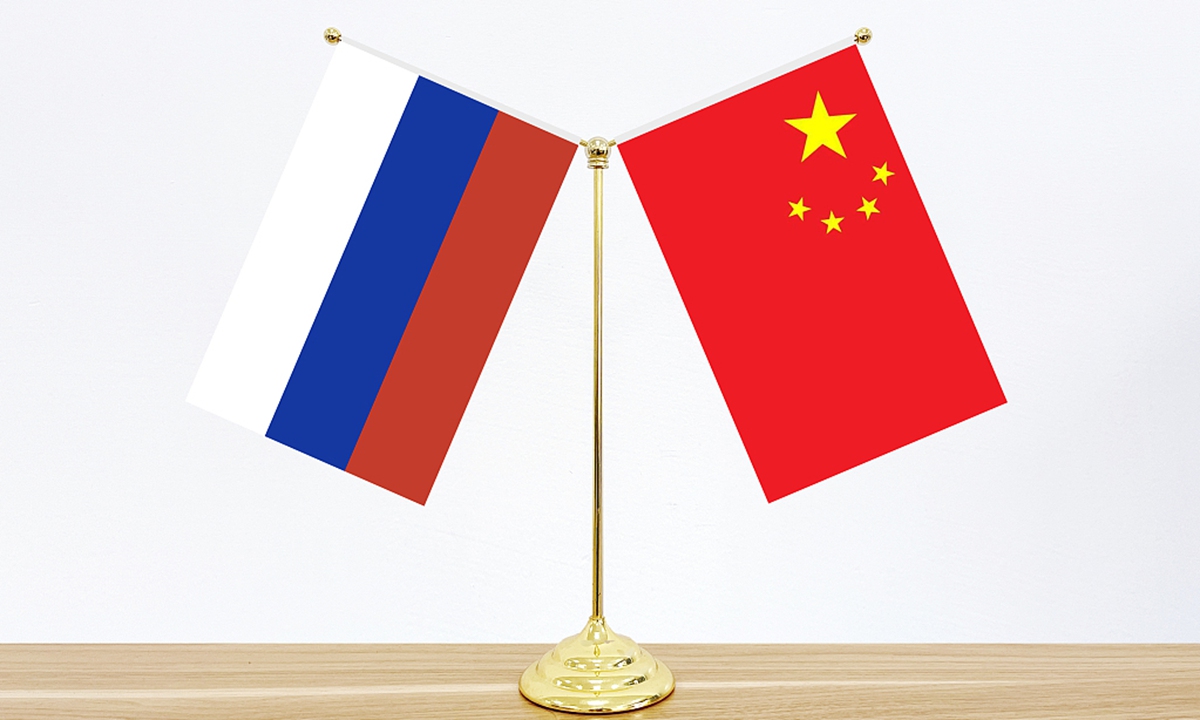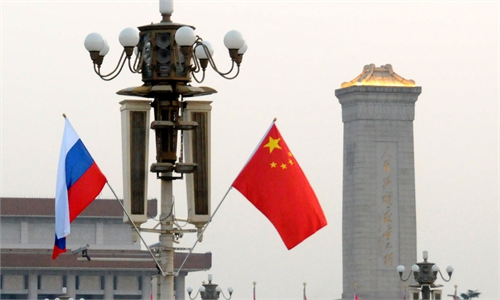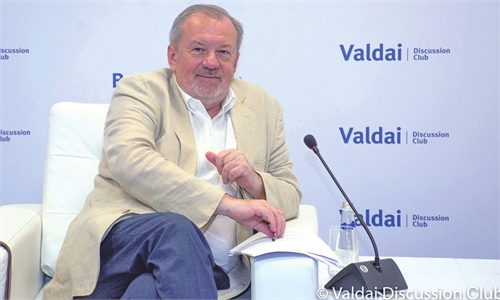As long as China, Russia stand shoulder to shoulder, hegemony will not win: Wang Yi
FM hails strategic coordination, practical cooperation between Beijing and Moscow

China Russia Photo:VCG
Chinese State Councilor and Foreign Minister Wang Yi on Thursday, the penultimate day of 2021, hailed the strategic coordination and practical cooperation between China and Russia from the perspective of the pandemic response, economic recovery, regional stability and global governance, highlighting that as long as China and Russia stand together shoulder to shoulder and deepen coordination hand in hand, the international order will not fall into disarray, justice in the world will not collapse, and hegemony will not win.
Wang made the remarks during his interview with state media on the state of international affairs and China's diplomacy in 2021, the year which marks the 20th anniversary of the signing of the Treaty of Good-neighborliness and Friendly Cooperation between China and Russia.
As to the question on what global strategic stability and development when China and Russia shoulder and carry out their responsibilities means, Wang said China and Russia are both major countries with global influence. Their strategic coordination and practical cooperation has a global significance and plays an irreplaceable role.
On the pandemic response, China and Russia have served as a good example to the world. With solidarity and mutual assistance, the two countries have been pioneering vaccine research, development, production and global distribution, in addition to jointly opposing the stigmatization and politicization of issues related to the coronavirus and its origins tracing, showing other members of the international community that solidarity is the right way to fight the pandemic, Wang said.
China and Russia have also provided a strong impetus on global economic recovery, a solid safeguard on regional stability and demonstrated a sense of responsibility on global governance, he said.
On June 28, President Xi Jinping and President Vladimir Putin officially announced the renewal of the Treaty and made it more relevant in the new era. The two presidents have stayed in close strategic communication throughout the year, and will get together for the Beijing Winter Olympics.
In his yearend press conference, Putin has stressed that Russia opposes politicizing sports and it is "unacceptable and wrong" to launch a so-called diplomatic boycott of the 2022 Beijing Winter Olympics. He noted that Washington will not prevent China's emergence as a global competitor by dragging politics into sports.
Chinese Ambassador to Russia Zhang Hanhui said in an interview with the Sputnik News Agency on Thursday that China and Russia are expected to reach a record trade volume of $140 billion by the end of 2021 and he expressed confidence in hitting the 2024 goal of $200 billion on time.
According to Chinese customs data, from January to November, China-Russia trade reached $130.4 billion, up 33.6 percent year on year.
The bilateral trade volume between China and Russia increased by nearly 13 times from $8 billion in 2000 to $107.7 billion in 2020. The Chinese ambassador stressed that at the same time, bilateral cooperation has been improved in both quantity and quality, enriched in content, improved in trade structure and in level of cooperation.
Guided by the two presidents, China-Russia relations have become more mature, stable, resilient and vibrant.
A new poll conducted by the Global Times Research Center, which was released on Wednesday, shows more Chinese people consider China-Russia and China-EU relations more important than China-US ties.
This is the first time the Global Times survey showed that people believe China-Russia relations are the country's most important bilateral ties, ahead of China-EU and China-US relations, since the research center launched the annual poll in 2006.
Also, nearly 60 percent of respondents considered that the China-Russia relationship is the most important one in China's relations with neighboring countries, while 48.5 percent of respondents took relations between China and Southeast Asian countries as the most important ties among neighboring countries.
Mutual trust between China and Russia bears solid ground as both countries are facing similar international environment and challenges from unilateralism, hegemony and bullying, Yang Jin, an associate research fellow at the Institute of Russian, Eastern European and Central Asian Studies at the Chinese Academy of Social Sciences, told the Global Times.
In recent years, China and Russia have conducted in-depth strategic coordination in response to the current international landscape, and achieved notable milestones. It is precisely because of such high-level coordination that current international order remains stable, Yang said.
Standing at the high point of fruitful 2021, 2022 is highly expected by the people from both China and Russia on deeper cooperation on anti-epidemic efforts, trade and economy, arms control and climate talks.
In an exclusive interview to the Global Times published on Thursday, Russia's national space agency Roscosmos said China and Russia will sign a new space Cooperation Program for 2023-2027 next year, which will include a plan to create an open and inclusive International Lunar Research Station (ILRS) by 2035.



